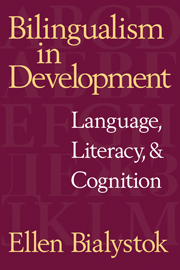5 - Thinking About Language
Published online by Cambridge University Press: 02 December 2009
Summary
The vocabulary we use to express our ideas is more than just a reference system. Words have power, and when words come into favor, they can take on a life of their own. Words can then determine our ideas, because they focus our attention on certain concepts at the expense of others and invoke assumptions that may never be made explicit. If the words are successful, they can spread across contiguous interest groups, entering the consciousness of what is eventually a widely dispersed research community. Just as language changes as it spreads to different cultures and different places, so too technical language changes as it is embraced by researchers occupied with different kinds of questions. One inevitable consequence of this terminological imperialism is a lack of consensus about the meaning of the term. Terms can be used by researchers from different traditions in ways that have little commonality, although the meaning differences are not necessarily detected. This was the case for the term critical period: a stable meaning needed to be established before it could be evaluated for its role in language learning (see Chapter 3).
This has also been the fate of the term metalinguistic. The prefix “meta” came into prominence in the 1970s and was applied to a variety of cognitive functions, such as metacognition and metamemory. Since then, it has been used by psychologists, linguists, and educators with little regard for its meaning in other contexts. Indeed, the prefix has been liberally attached to any concept or activity that requires some extra knowledge or effort.
- Type
- Chapter
- Information
- Bilingualism in DevelopmentLanguage, Literacy, and Cognition, pp. 121 - 151Publisher: Cambridge University PressPrint publication year: 2001



